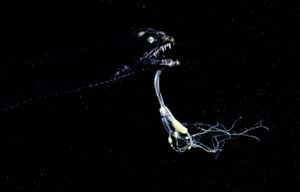To continue with George Oppen: His poetry seems to get even more obscure, or perhaps oblique is the better word, by the time of later collections such as Primitive (1978). “If it all went up in smoke” is a case in point. It is a poem which conveys its meaning through association and resonance, in which Oppen comments on the origin of poetry, especially as it relates to the American scene. Poetry, for Oppen, remains tied to nature, though it exists not merely in the placid contemplation of the natural world, but in the “savage” energy it embodies. Thus, for Oppen the poem is akin to the kind of wild energy that is inherent in uncultivated nature. This is a force so vital that it cannot be completely dissipated, but only transformed. Despite the fact that the American landscape has been conquered and tamed, our perception of that landscape as “savage” remains (having long been cast as such in the literature of early English and European explorers and settlers, for example), and can still be tapped into as poetic inspiration. Yet Oppen moves against the easy Romantic idea of the poet “communing” with nature, where humans and nature are supposed to be able to harmoniously merge. He suggests that poetry springs not particularly from such a communing, but from the juxtaposition of wildness and civilization, where humans must approach nature from the vantage point of human society. (In this, he presages some of the thinking of contemporary eco-criticism in regard to the supposed split between nature and society.)
Oppen begins the poem with a statement, or proposition: “if it all went up in smoke // that smoke / would remain” – suggesting the idea that energy cannot be destroyed, but only transformed. These opening lines (which incorporate the poem’s title, a technique Oppen uses in many of the poems in this collection) are set off by their being put in italics, as if to highlight their importance as an underlying theme. If America is Oppen’s “forever savage country,” then he is suggesting in this statement that although the American wilderness may now have largely been conquered, its “savageness” still remains in some way. In this case it takes the form of poetry. After the initial offering of the italicized theme, Oppen says that “the forever / savage country poem’s light [is] borrowed // light of the landscape…” This is what first clues us in that the poem is about poetry itself, and that poetry is being connected to nature. The poem’s “light” – its energy or essence perhaps – is for Oppen still rooted in nature. “Savage country” specifically implies the sense of nature as being distinct from civilization (the etymology of the word “savage” is ultimately the Latin silvāticus: silva, “woods,” plus the adjectival suffix -āticus). Thus, poetry for Oppen “borrows” something of this untamed, natural, wild energy found in the forest or the wilderness.
However, Oppen complicates what could have been a rather simplistic or even Romantic vision of the relation of poetry to nature. As we have seen, the poem borrows, but transforms for its own purposes. Oppen as poet consciously co-opts the energy of nature and transforms it into something else (poetry). They are not equivalent, though they are connected. That natural energy no longer exists in its original state but has become something else (the “smoke” “remains”). After describing poetry as “borrowed light of the landscape,” Oppen continues: “and one’s footprints praise” – which explicitly introduces humankind. We see the human sense of awe or reverence before nature, an early or almost primitive reverence (as in the collection’s title, Primitive). Humans praise from within “the close / crowd” (society), and they praise “all / that is strange.” Nature is perceived as strange from within society – still “forever savage” – and Oppen is making no effort to become mystically united with it. This strangeness, however, remains “the sources / the wells” of poetry. In this way, the perceived savageness of nature is brought into society, having been transmuted to poetry, which is also inevitably imbued with a touch of that very savageness.
For Oppen, as he continues in this poem, poetry begins “neither in word / nor meaning but the small / selves haunting // us in the stones…” It is nothing more than that, but “is less / always than that…” This “less” seems to deliberately undercut the mystique of the poetic process – it is not the grandiose, hieratic conception of the “Poet” put forth by the Romantics. Poetry is something enacted within human society. At the same time, there is certainly a relationship between man and the natural world, which we get in the ensuing words: “help me I am / of that people the grass // blades touch…” Here there is a sense of the fragility of human life in the face of uncivilized nature, but also of a connection in that touching of the grass blades. For Oppen, there is a dynamism in this relationship, a vitality important not only for life itself but which can also be a catalyst for poetry. The conclusion of this piece – “and touch in their small // distances the poem / begins” – again implies this connection however “distant.” So, poetry for Oppen is not simply inspired by the Romantic contemplation of nature, but arises from the particular relationship of the poet (existing within society) to nature, and in the way he engages nature’s “savage” aspect from the vantage point of “society” – and especially their interpenetration.
Subscribe to:
Post Comments (Atom)
























No comments:
Post a Comment